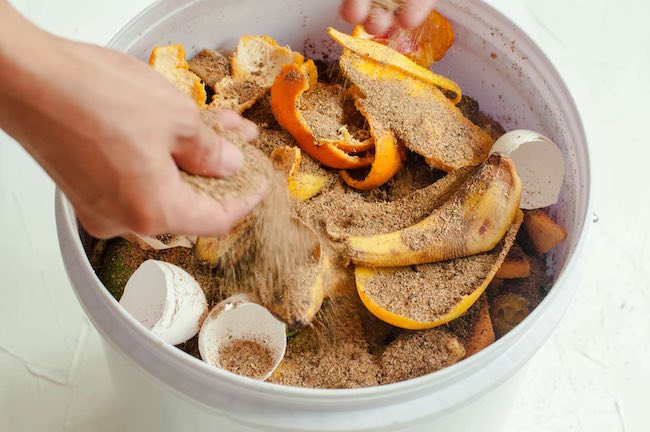Your basket is currently empty!

Bokashi composting is a method of composting that originates from Japan and involves fermenting organic waste using a special mixture of beneficial microbes. The word “bokashi” means “fermented organic matter” in Japanese.
To start the bokashi composting process, a layer of organic waste is placed in a container, and the bokashi mix is sprinkled on top. This mixture contains beneficial microorganisms that break down the waste material and create a nutrient-rich compost.
Bokashi composting is unique because it can break down all types of organic waste, including meat, dairy, and citrus, which are typically not recommended for traditional composting methods. Additionally, the bokashi composting process is anaerobic, meaning it does not require oxygen to break down the organic matter, making it a great option for those who have limited outdoor space or live in apartments.
After a few weeks of fermenting, the bokashi compost can be used as a soil amendment for plants. It is highly nutrient-dense and contains beneficial microorganisms that can improve soil health and plant growth. It can also be used to make compost tea, which is a liquid fertilizer that can be used to feed plants directly.
In summary, bokashi composting is a unique method of composting that uses a mixture of beneficial microbes to ferment organic waste. This process can break down all types of organic matter and produces a highly nutrient-dense compost that can be used to improve soil health and plant growth.














